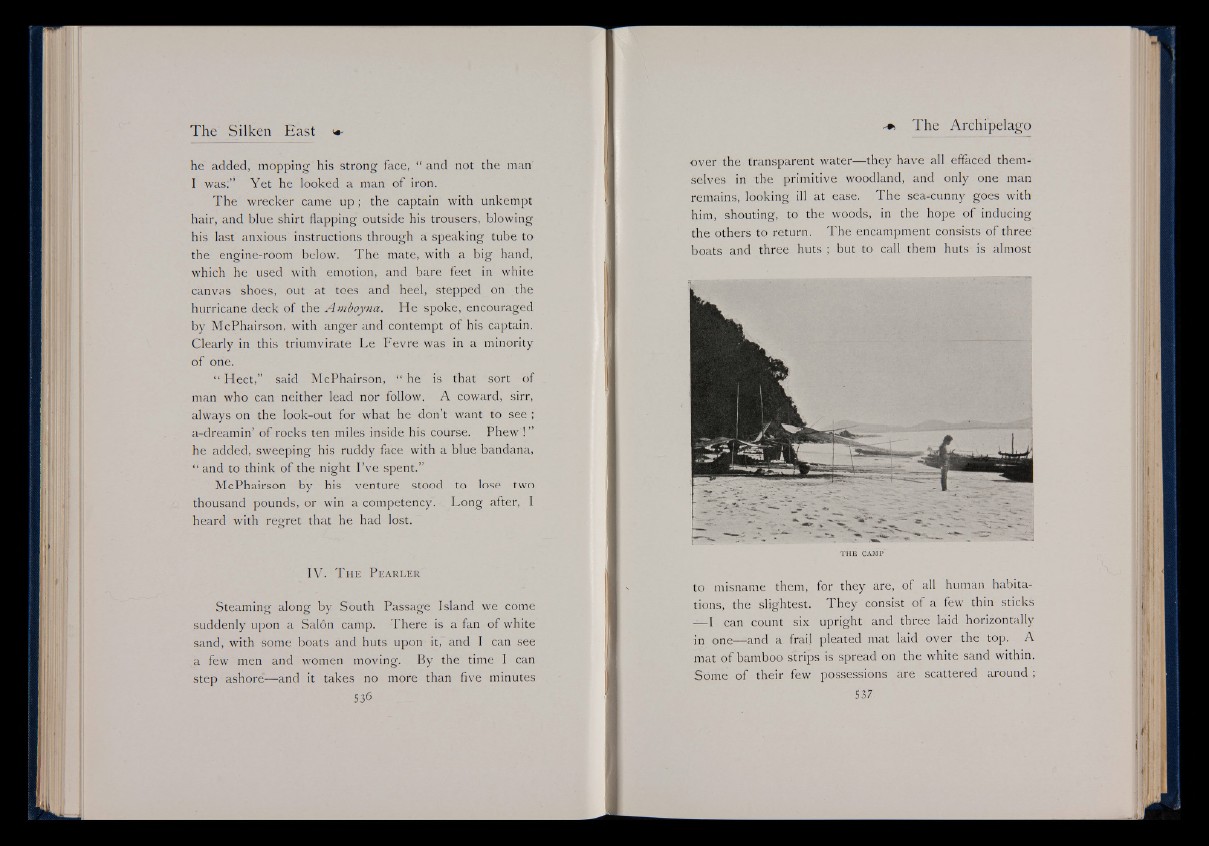
he added, mopping his strong face, “ and not the man
I was:” Yet he looked a man of iron.
The wrecker came u p ; the captain with unkempt
hair, and blue shirt flapping outside his trousers, blowing
his last anxious instructions through a speaking tube to
the engine-room below. The mate, with a big hand,
which he used with emotion, and bare feet in white
canvas shoes, out at toes and heel, stepped on the
hurricane deck of the Amboyna. He spoke, encouraged
by McPhairson, with anger and contempt of his captain.
Clearly in this triumvirate Le P'evre was in a minority
of one.
“ Hect,” said McPhairson, “ he is that sort of
man who can neither lead nor follow. A coward, sirr,
always on the look-out for what he don’t want to see ;
a-dreamin’ of rocks ten miles inside his course. Phew ! ”
he added, sweeping his ruddy face with a blue bandana,
“ and to think of the night I ’ve spent.”
McPhairson by his venture stood to lose two
thousand pounds, or win a competency. Long after, I
heard with regret that he had lost.
IV. T h e P e a r l e r
Steaming along by South Passage Island we come
suddenly upon a Salon camp. There is a fan of white
sand, with some boats and huts upon it, and I can see
a few men and women moving. By the time I can
step ashore—and it takes no more than five minutes
536
over the transparent water—they have all effaced themselves
in the primitive woodland, and only one man
remains, looking ill at ease. The sea-cunny goes with
him, shouting, to the woods, in the hope of inducing
the others to return. The encampment consists of three
boats and three huts ; but to call them huts is almost
TH E CAMP
to misname them, for they are, of all human habitations,
the slightest. They consist of a few thin sticks
— I can count six upright and three laid horizontally
in one— and a frail pleated mat laid over the top. A
mat of bamboo strips is spread on the white sand within.
Some of their few possessions are scattered around ;
537